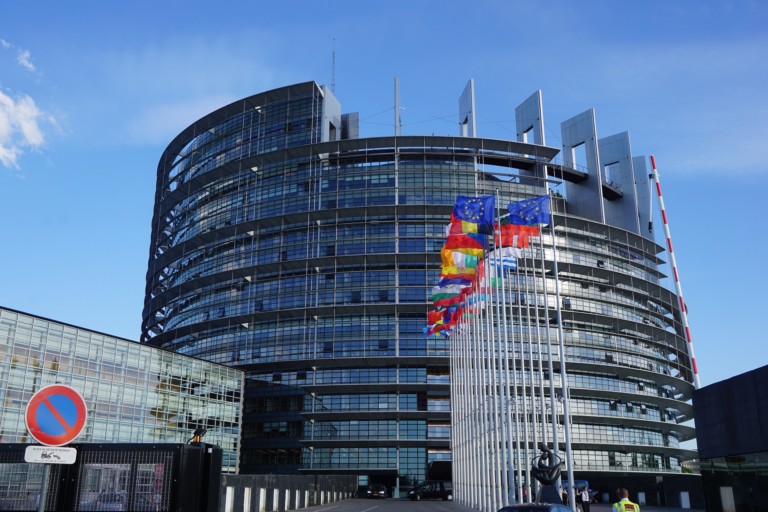New report says independent expert advisory body on climate change essential to strengthen political support for climate action across the EU

There is a clear need for an independent expert advisory mechanism on climate change at the European level to enable more effective implementation of the European Climate Law, according to a new joint report published today (3 September) by the Grantham Research Institute on Climate Change and the Environment at the London School of Economics and Political Science, and the Elcano Royal Institute for International and Strategic Studies.
The aim of the report, “The design of an independent expert advisory mechanism under the European Climate Law: What are the options?” is to enhance debate on the need for, and the design of, an independent expert advisory mechanism under the European Climate Law, based on the experiences with the implementation of national climate change legislations.
The report encourages the European Union to take inspiration and learn from governance innovations and experience at the national level, where it says most national climate change laws assign responsibilities to independent expert advisory bodies that strengthen the credibility and legitimacy of climate change policies.
The report argues that an independent expert advisory mechanism on climate change will not undermine or duplicate the mandate of the European Commission but rather strengthen political buy-in into the proposals by the Commission. It also makes clear that the mandate of a European advisory mechanism on climate change would not overlap with or undermine the Intergovernmental Panel on Climate Change (IPCC).
“The IPCC’s mandate is to determine the state of knowledge on climate change and does not provide advice on specific targets and policy proposals. The proposed independent advisory body would integrate the findings of the IPCC to ensure continued alignment of EU policy with the latest scientific findings,” said Dr. Lara Lazaro Touza, Senior Analyst at the Elcano Royal Institute and Lecturer in Economic Theory at Cardenal Cisneros University College in Madrid.
The report recommends that the climate advisory mechanism be comprised of between five and fifteen prominent experts who are recognised as authorities in the fields of climate science, economics, behavioural sciences and relevant sectoral expertise internationally, with each member being selected through a transparent and competitive selection process. Strong Parliamentary oversight to further strengthen the accountability of policy makers for implementation of the mechanism’s recommendations will also be crucial.
“The composition of an independent advisory mechanism has a major impact on the likelihood of it having substantial policy influence. Failure to establish a credible independent advisory mechanism in the EU would expose the process of the implementation of the legislation to additional political pressure,” said Dr. Alina Averchenkova, Distinguished Policy Fellow at the Grantham Research Institute at the London School of Economics and Political Science.
The mandate of the European independent expert advisory body on climate change should, according to the report, include the undertaking of independent reviews of proposals by the Commission on the emission trajectories for achieving climate neutrality, as well as the assumptions and models that provide the basis for the development of climate change policies. The main goals of the independent review should be to ensure the alignment of the proposals with the latest scientific findings and the agreed targets, enhancing their credibility and political buy-in.
Read the policy report: The design of an independent expert advisory mechanism under the European Climate Law: What are the options?
– END –
For further information and for interview requests please contact Niamh Brannigan at n.brannigan@lse.ac.uk or +44 (0) 7933997989 or +254 717733348
Notes for editors
About The Grantham Research Institute on Climate Change and the Environment
Established in 2008 at the London School of Economics and Political Science, the Institute brings together international expertise on economics, as well as finance, geography, the environment, international development and political economy to establish a world-leading centre for policy-relevant research, teaching and training in climate change and the environment. It is funded by the Grantham Foundation for the Protection of the Environment. www.lse.ac.uk/grantham/
About The Centre for Climate Change Economics and Policy (CCCEP)
The Centre for Climate Change Economics and Policy (CCCEP) was established in 2008 to advance public and private action on climate change through rigorous, innovative research. The Centre is hosted jointly by the University of Leeds and the London School of Economics and Political Science. It is funded by the UK Economic and Social Research Council. www.cccep.ac.uk
About the Elcano Royal Institute for International and Strategic Studies
The Elcano Royal Institute is Spain’s leading think tank specialised in international and strategic studies conducted from a Spanish, European and global perspective. Its goal is to promote knowledge of the current international situation and of Spain’s foreign relations, as well as to provide a focal point for debating and generating ideas that may prove useful in the decision-making processes of political office-holders, the leaders of private enterprises and public institutions, social actors and academics. www.realinstitutoelcano.org

